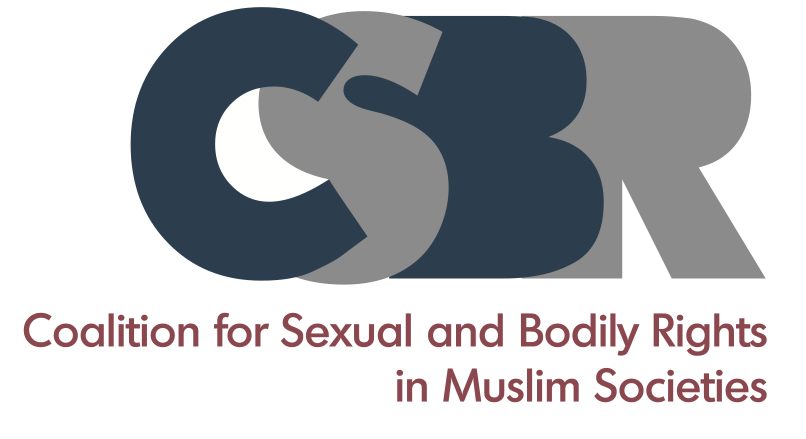This statement has been jointly prepared by 190 sex worker rights, women’s rights, and human rights organizations.[*]
We are writing this statement in response to UN Women’s call for submissions in an e-consultation about the development of a UN Women policy on sex work. A number of sex workers’, women’s and human rights organizations have been engaging with UN Women for some months about this proposed policy, stressing the importance of a process that meaningfully engages with a broad range of sex workers’ and women’s rights organizations as essential to the process of developing a policy.
While UN Women has stated that they are engaging in an open process, we are alarmed at the possibility that the end result will not support the human rights of sex workers.[1] For instance, the wording of question 3, to us, indicates an already established point of view. They ask “The sex trade is gendered. How best can we protect women in the trade from harm, violence, stigma and discrimination?” While we would certainly agree that sex workers of all genders face discrimination, harm, stigma and violence, we note that there is ample evidence that decriminalization of sex work is the best remedy to empower sex workers to advocate for their rights and to engage with state and non-state actors to secure their rights. It is imperative to clearly distinguish consensual sex work from human trafficking, as well as recognize that there are female, male and transgender sex workers.
As a co-sponsor of UNAIDS, we urge UN Women to ensure that their policy aligns with the recommendations from the Global Commission on HIV and the Law and the UNAIDS Guidance Note on HIV and Sex Work which recommends:
“States should move away from criminalising sex work or activities associated with it. Decriminalisation of sex work should include removing criminal penalties for purchase and sale of sex, management of sex workers and brothels, and other activities related to sex work.”[2]
In the following statement, we focus on five key recommendations for UN Women to consider in their policy development process:
1. Development of the policy through a transparent and participatory process, engaging a diverse range of sex workers from the global South and North.
We are deeply concerned that the only public consultation to date is an e-consultation. Such a process risks excluding many of those who are critical to the discussion – sex workers in communities with limited Internet and not familiar with UN jargon or human rights treaties. Therefore, we call on UN Women to develop and engage in a transparent and inclusive consultation with sex workers’ rights, women’s rights, and other relevant organizations in the preparation of any UN Women policy in relation to sex work.[3]
An appropriate process should be well planned, participatory and must include sex workers representing the full diversity of classes, races, sexes, genders, ethnicities, health status, ages, nationalities, citizenships, languages, education levels, disabilities, and other factors, in order to ensure that those most impacted by such policies/guidelines in various regions of the world are significantly engaged in the process.
2. Anchored in human rights principles
UN Women, as a UN agency dedicated to advancing gender equality and the human rights of women, should take as its starting point the respect, protection, promotion and fulfilment of human rights, enshrined in international and regional conventions and national constitutions.
Any UN Women policy in relation to sex work should recognize sex workers as rights holders and decision makers. Their choices should be respected in relation to all areas of engagement in life, including in relation to their sexuality, reproduction, employment, access to services and information, freedom of movement and assembly. Sex worker’s participation in legal, policy and programmatic processes in relation to sex work should be guaranteed.[4]
In this regard, recognizing sex worker’s labour as work, not dissimilar to other forms of labour in the service sector of the economy, and hence of their economic contribution to society, is integral to respecting, protecting and fulfilling sex workers’ human rights. In this regard, it is important for UN Women to align their policy with that of the International Labour Organization (ILO). The ILO recognises sex work as informal labour in the official Report of the Committee on HIV/AIDS, which accompanied the publication of the ILO standard ‘Recommendation concerning HIV and AIDS and the World of Work, 2010 (No. 200)’.[5] The ILO is clear that sex work is covered by this instrument recognizing work in both formal and informal economies.
3. Distinguishing between sex work and trafficking
The conflation of consensual sex work and human trafficking leads to the implementation of inappropriate responses that fail to assist either of these groups in realizing their rights, and can contribute to violence and oppression.[6] At the same time the narrow concentration of anti-trafficking programmes on the sex industry also distracts from efforts to prevent other forms of trafficking such as domestic servitude and forced labour.[7] Instead of victimising women who engage in consensual sex work and questioning their capacity to make decision for themselves and their right to self-determination, UN Women should protect and promote sex worker’s rights. We recognize that exploitation and labour rights abuses exist in the sex industry; however, as shown in the literature the best way to address these human rights abuses is through the fulfilment of sex workers human rights and through the opposition to all forms of legal oppression of sex work.[8] People who choose to engage in sex work, do so because it is a viable alternative to other work and livelihood choices. Women’s agency and capacity to challenge their exploitation and exercise their rights in relation to their occupation should be recognized.
Trafficking people is not the same as sex work involving consenting persons. A distinction, drawing from the “Palermo Protocol,”[9] must be clearly demarcated between voluntary sex work and involuntary and coercive exploitation and trafficking, including the non-consensual trade of persons for this purpose.[10] UN agencies, such as WHO, UNAIDS, OHCHR, UNDP, international organizations such as ILO, UN treaty monitoring bodies, and UN Special Rapporteurs carefully distinguish between sex work and trafficking and sexual exploitation, and UN Women should follow the same practice.[11]
4. The importance of decriminalization and removal of related punitive laws and policies[12]
Strong evidence shows that criminalization and otherwise punitive and restrictive regulation of sex work puts sex workers at greater risk of violence and poor health outcomes. In contrast, an enabling legal environment for sex workers increases their access to justice and services. Indeed, The Lancet suggests that decriminalization could avert 33–46% of HIV infections globally in the next decade.[13] In doing so, decriminalization is an important tactic for reaching several of the SDGs, including SDG 3 (good health), SDG 5 (gender equality) and SDG 10 (reduced inequality).
Criminalization and the application of other punitive or restrictive regulations that violate the rights of sex workers and foster discriminatory practices and stigmatizing social attitudes, do not eliminate sex work, but rather, create barriers to sex worker’s access to essential services like health care or legal redress. It places women engaging in sex work at a higher risk of violence,[14][15] and reduces sex workers’ ability to organize with the aim to improve their health and safety or advance their rights.[16]
Positive measures, including decriminalization of sex work, that respect and protect the rights and promotes the well-being of sex workers should be supported. This includes full decriminalization of sex work consultation with sex workers prior to any introduction of regulations that aim to protect the rights, health and safety of sex workers, including the formulation and implementation of workplace occupational health and safety standards; recognizing sex work as labor and as an economic contribution to society; provision of non-discriminatory health and social services; non-discriminatory access to health insurance and social protections such as maternity leave; protection of labor rights; and protection from forced eviction, police brutality and violence. [17]
5. Addressing all forms of violence against all sex workers
UN Women’s policy should be anchored in evidence, and comprehensively address all forms of discrimination and violence against sex workers. Violence against sex workers occurs not only because of economic, social and legal disadvantages, but it is perpetrated with impunity by state (law enforcement officers) and non-state actors. Sex workers are often left without legal recourse or access to health and legal services. Hence, a comprehensive structural response is needed in order to eliminate violence against sex workers.[18] And indeed, full decriminalisation of sex work in combination with the recognition of sex worker’s rights and introduction of health and safety protections for sex workers can lead to a dramatic reduction of violence against sex workers of all genders and the reduction of corruption or organized crime.[19]
UN Women’s sex work policy should emphasize the importance of advancing sex workers’ access to equal protection of the law,[20] and address their lack of access to justice, remedies and redress. As suggested by the call by UN Women and the IOM to the UN General Assembly on the occasion of UN Summit for refugees and migrants[21], national or migrant sex workers should have access to justice mechanisms, as well as fair and adequate compensation for their work. They should also have access to health care facilities. The access should be non-discriminatory, free from stigma, youth-friendly, and the testimony and wishes of sex workers should be prioritized.[22] Health services should be available upon request and should not require second-party (spousal guardian or parental) consent.
SIGNATORIES:
- NSWP/Global Network of Sex Work Projects (UK/Global)
- CREA (India)
- CREA (Global)
- VAMP/Veshya Anyay Mukti Parishad (India)
- Dandelion Kenya (Kenya)
- IWHC/International Women’s Health Coalition (US/Global)
- African Sex Workers Alliance/ASWA (Kenya/Regional)
- Mama Cash (Netherlands/Global)
- Davida – Prostituição, Direitos Civis, Saúde (Prostitution, Civil Rights, Health) (Brazil)
- Daspu (Brazil)
- RedTraSex, (Regional)
- Asia Pacific Network of Sex Workers/APNSW (Regional)
- Global Fund for Women (US/Global)
- Urgent Action Fund Sisterfunds (Fondo Acción Urgente (UAF-Latin America), Urgent Action Fund Africa, Urgent Action Fund)
- Caribbean Sex Work Coalition (Regional)
- Guyana Sex Work Coalition (Guyana)
- Balance (Mexico)
- UHAI, EASHRI (Eastern Africa)
- African Women’s Development Fund/AWDF (Regional)
- La Strada International (Europe)
- Rose Alliance (Sweden)
- South Asia Women’s Fund (Sri Lanka/Regional)
- Sexuality Policy Watch, a project based at ABIA (Brazil)
- Astraea Lesbian Foundation for Justice (US)
- Foundation Aid Care Prostitution/SHOP- Stichting Hulpverlening Opvang Prostitutie (Netherlands)
- SWAN/Sex Workers’ Rights Advocacy Network in Central and Eastern Europe and Central Asia (Hungary/Regional)
- International Network of Women who use Drugs (Global)
- Akahata – Equipo de Sexualidades y Generos (Argentina)
- Associação Mulheres Guerreiras (Brazil)
- Rights4Change (Netherlands)
- UCO Legalife-Ukraine (Ukraine)
- TAMPEP International Foundation (Europe)
- Arab Foundation for Freedoms and Equality
- GATE/Global Action for Trans Equality (Global)
- SWOP/Sex Workers Outreach Project (US)
- Arab Foundation for Freedoms and Equality
- Global Alliance Against Traffic in Women/GAATW (Global)
- ARC International (Canada)
- Red Umbrella Alliance, New Jersey (US)
- RESURJ/Realizing Sexual and Reproductive Justice Alliance (Global)
- Red Umbrella Fund (Global)
- Red Umbrella Sexual Health and Human Rights Association (Turkey)
- HIVOS (Netherlands/Global)
- International HIV/AIDS Alliance (UK/Global)
- AJWS/American Jewish World Service (US)
- The Asian-Pacific Resource and Research Centre for Women (ARROW) (Malaysia/Regional)
- Best Practices Policy Project (US)
- Youth Coalition for Sexual and Reproductive Rights (Global)
- Prostitution Policy Watch – Federal University of Rio de Janeiro (Brazil)
- Atria – Institute for Gender Equality and Women’s History (Netherlands)
- Netherlands Council of Women (Netherlands)
- Action Canada for Sexual Health and Rights (Canada)
- PONY, Prostitutes of New York (US)
- Global Health Justice Partnership, Yale University (US)
- Gender at Work (Canada/Global)
- Point of View (India)
- Count Me In! Consortium (Partnership of AWID, CREA, JASS, Mama Cash and the Urgent Action Funds)
- Coalition for Sexual and Bodily Rights in Muslim Societies (Global)
- IWRAW-AP/International Women’s Rights Action Watch Asia Pacific (Malaysia/Global)
- SANGRAM/Sampada Gramin Mahila Sanstha (India)
- CASAM/Centre for Advocacy on Stigma and Marginalisation (India)
- Nazariya (India)
- Coalition of African Lesbians (South Africa, Regional)
- Sexual Rights Initiative (Global)
- Center for Women’s Global Leadership (US)
- Naripokkho (Bangladesh)
- AWID/Association for Women’s Rights in Development (Global)
- Just Associates/JAS (Global)
- Sex Workers Project, Urban Justice Center (US)
- Hydra e.V. (Germany)
- ASTRA anti-trafficking action (Serbia)
- Women’s Global Network for Reproductive Rights/WGNRR (Global)
- African Sky
- FairWork, (Netherlands)
- LEFÖ – Information, Education and Support for Migrant Women (Austria)
- Association of Women and the Law/Vereniging Vrouw en Recht (Netherlands)
- Rede Brasileira de Prostitutas (Brazilian Network of Prostitutes)
- Gempac (Grupo de Mulheres Prostitutas do Pará – Brasil )
- Rutgers: for sexual and reproductive health and rights (Netherlands)
- DAWN/Development Alternatives with Women for a New Era (Global)
- TIYE International (Netherlands)
- Association PROJOB (Netherlands)
- Pathways of Women’s Empowerment (UK)
- International Committee on the Rights of Sex Workers in Europe/ICRSE (Europe).
- Coyote, Rhode Island (US)
- Canadian HIV/AIDS Legal Network (Canada)
- MATCH International Women’s Fund (Canada)
- Taso Foundation – Women’s Fund and Memory Research Center (Georgia)
- CFEMEA – Centro Feminista de Estudos e Assessoria (Brazil)
- Dutch CEDAW Network (Netherlands)
- Stepping Stone Association of Halifax, Nova Scotia (Canada)
- CVC/Caribbean Vulnerable Communities (Jamaica/Regional)
- Sex Worker Education and Advocacy Taskforce (South Africa)
- Sisonke National Sex Worker Movement of South Africa
- AMSHeR/African Men for Sexual Health and Rights (Continental Africa)
- Asia Pacific Network of People Living With HIV (APN+)
- International Council of AIDS Service Organizations/ICASO (Canada/Global)
- Coalition of Asia-Pacific Regional Networks on HIV/AIDS (7 Sisters)
- Simone de Beauvoir Leadership Institute/Instituto de Liderazgo Simone de Beauvoir (Mexico)
- Stella, l’Amie de Maimie (Canada)
- Sex Workers Education and Advocacy Taskforce (South Africa)
- Sisonke National Sex Worker Movement of South Africa (South Africa)
- Maggie’s Toronto Sex Workers Action Project (Canada)
- APDES (Portugal)
- Asociación Civil Angel Azul (Peru)
- Feminist Ire (Ireland)
- Gender and Sexual Health Initiative (Canada)
- Healthy Options Project Skopje (Macedonia)
- Ghapro VZW (Belgium)
- Comitato per i Diritti Civili delle Prostitute onlus (Italy)
- OTS-ES (El Salvador)
- STAR-STAR (Macedonia)
- Pace Society (Canada)
- Operation Snatch (Canada)
- L’association Nationale de Protection des Femmes et Enfants Haïtiens (Haiti)
- Pacific Rainbows Advocacy Network (Fiji)
- Zi Teng (Hong Kong)
- Respect Inc. (Australia)
- Women’s Network for Unity (Cambodia)
- HPLGBT (Ukraine)
- HIV/AIDS Research and Welfare Centre (Bangladesh)
- WONETHA (Uganda)
- Espace P (Brussels)
- Asociación de Mujeres Las Golondrinas (Nicaragua)
- Genera: Asociación en defensa de los derechos de las mujeres (Barcelona)
- Athena Network (US/Global)
- Kenya Sex Workers Alliance -KESWA
- Sisonke Botswana
- Alcondoms Cameroon
- WOPI -Nigeria
131. Rights Not Rescue Trust (Namibia)
- SWATU (Swaziland)
- Rwanda Sex Worker
- Bar Hostess Empowerment and Support Programme (Kenya)
- Philippine Sex Worker Collective (Phillipine)
- The Stepping Stone Association (Canada)
- Réseau Solidarité pour le Droit des Travailleuses du Sexe (Burundi)
- Association Nle de Protection des Femmes et Enfants Haitiens (Haiti)
- Safe Harbour Outreach Project (Canada)
- Sexual Health Options, Resources & Education Centre (Canada)
- Sex Professionals of Canada / SPOC (Canada)
- Voices of Women in Western Kenya/VOWWEK (Kenya)
- East Africa Trans Health and Advocacy Network (EATHAN)
- Fundación Arcoiris (Mexico)
- The Global Network of People Living with HIV/GNP+ (Netherlands/Global)
- Center for Health and Gender Equity/CHANGE (US)
- Options for Sexual Health (Canada)
- FEM Alliance Uganda
- SCOT-PEP (Scotland, United Kingdom)
- Associação das Prostitutas dr Minas Gerais (Brazil)
- Caribbean Sex Work Coalition (Caribbean, Regional)
- Jamaica SW Coalition (Jamaica)
- Guyana SW Coalition (Guyana)
- HIPS (United States)
- Crested Crane Lighters (Uganda)
- OPSI (Indonesia)
- Organization for Gender Empowerment and Rights Advocacy (Uganda)
- Amitiel Welfare Society (Pakistan)
- Aids Myanmar Association (Myanmar)
- Philadelphia Red Umbrella Alliance (United States)
- Kisauni Peer Educators (Kenya)
- Lady Mermaid’s Bureau (Uganda)
- Malawi Sex Workers Alliance (Malawi)
- Transgender Equality Uganda (Uganda)
- Tanzania Community Empowerment Foundation (Tanzania)
- Ohotu Diamond Women Initiative (Nigeria)
- Sex Workers Outreach Project Chicago (United States)
- Homme pour Les Droits et la Santé Sexuelle (Congo)
- Alcondoms (Cameroon)
- Cameroon Sex Worker Alliance (Cameroon)
- SeksworkExpertise (Netherlands)
- Aids Fund/Soa Aids (Netherlands)
- PROUD (Netherlands)
- Geledes Instituto da Mulher Negra (Brazil)
- CEPIA/Cidadania Estudo Pesquisa Informação Ação (Brazil)
- Rede Nacional Feminista de Saúde Direitos Sexuais e Direitos Reprodutivos (Brazil)
- Pivot Legal Society (Canada)
- Astitva Trust (India)
- Asia Pacific Transgender Network
- Uganda Health and Science Press Association
- LGBTI and Sex Workers Rights to Health in Public Health Policy and Law in Uganda
- Empower Foundation (Thailand)
- JJJ Association (Hong Kong)
- Teenz Links Uganda (Uganda)
- Action Humanitaire pour la Santé et le Développement Communautaire (Congo)
- MAIZ (Australia)
- Association of HIB Affected Women and their Families (Lithuania)
- Le Collectif Femmes de Strasbourg-Saint-Denis (France)
- Butterfly Asian and Migrant Sex Workers Support Network (Canada)
- Gay and Lesbian Coalition of Kenya/GALCK (Kenya)
- Asia Pacific Transgender Network/APTN (Thailand/Regional)
[*] All signatories are listed at the end of the letter. Several of the signatories are networks that represent a number of other organizations, each of which did not sign individually but as part of the network. The Global Network of Sex Work Projects, for instance, has over 200 members.
[1] Sex workers include “female, male and transgender adults and young people (over 18 years of age) who receive money or goods in exchange for sexual services, either regularly or occasionally”. Sex work may vary in the degree to which it is “formal” or organized. It is important to note that sex work is consensual sex between adults, which takes many forms, and varies between and within countries and communities.
[2] UNAIDS. UNAIDS Guidance Note on HIV and Sex Work, Geneva, 2012. http://www.unaids.org/en/media/unaids/contentassets/documents/unaidspublication/2009/JC2306_UNAIDS-guidance-note-HIV-sex-work_en.pdf
[3] UNAIDS Guidance Note on HIV and Sex Work that has been published in 2012. http://www.unaids.org/sites/default/files/sub_landing/JC2306_UNAIDS-guid…
[4] UN Women. Note On Sex Work, Sexual Exploitation and Trafficking. 2013. See also UNAIDS Guidance Note On HIV and Sex Work, 2012; UNFPA Guidance Note On HIV/Aids, Gender and Sex Work – complete reference; NSWP Consensus Statement reaffirms NSWP ’s global advocacy platform for sex work, human rights and the law. 2013.
[5] International Labour Organization, Recommendation concerning HIV and AIDS and the World of Work (No. 200) adopted 2010. Available at http://www.ilo.org/aids/WCMS_142706/lang–en/index.htm
[6] Report of the Special Rapporteur on the right of everyone to the enjoyment of the highest attainable standard of physical and mental health, Anand Grover. New York (NY): United Nations; 2010 (A/HRC/14/20); see also Global Alliance Against Trafficking in Women (GAATW), “The Cost of a Rumour” available at http://www.gaatw.org/publications/WhatstheCostofaRumour.11.15.2011.pdf; and Global Network of Sex Work Projects (NSWP) “Sex Work is not Trafficking” available at http://www.nswp.org/resource/sex-work-not-trafficking.
[7] See, for instance, Joanna Busza. Sex work and migration: the dangers of oversimplification-a case study of Vietnamese women in Cambodia. Health and Human Rights, 7:2, 231-249, 2004.
[8] See citations listed in footnote 6. See also the Lancet Special Issue on HIV and Sex Work, July 2014 at http://www.thelancet.com/series/HIV-and-sex-workers; Decker, et al., “Human rights violations against sex workers: burden and effect on HIV, in the Lancet, Volume 385, Issue 9963, 10–16 January 2015, Pages 186–199; J. Amon et. al., Evaluating Human Rights Advocacy on Criminal Justice and Sex Work, International Journal of Health and Human Rights, Jun2015, Vol. 17 Issue 1, p91-101.
[9] The Protocol to Prevent, Suppress and Punish Trafficking in Persons Especially Women and Children, supplementing the
United Nations Convention against Transnational Organized Crime (Palermo Protocol). GA resolution 55/25, adopted 15 November 2000. Available at http://www.ohchr.org/EN/ProfessionalInterest/Pages/ProtocolTraffickingIn…
[10] UN Women. Note On Sex Work, Sexual Exploitation and Trafficking. 2013;
[11] Global Commission on HIV and the Law. (2012) HIV and the law: risks, rights and health. New York (NY): United Nations Development Programme; 2012; Technical guidance for Global Fund HIV proposals Round 11 (complete), The report of the UNAIDS Advisory Group on HIV and sex work. Geneva: Joint United Nations Programme on HIV/AIDS; 2011; WHO, UNFPA, UNAIDS, NSWP, World Bank & UNDP, 2013, “Implementing Comprehensive HIV/STI Programmes with Sex Workers: Practical Approaches from Collaborative Interventions” available athttp://www.who.int/hiv/pub/sti/sex_worker_implementation/en/. UNODC 2006 Protocol to prevent, suppress and punish trafficking in persons, especially women and children, supplementing the United Nations Convention against Transnational Organized Crime. New York (NY): United Nations; 2000 (A/55/49 (Vol. I)); http://www.ohchr.org/EN/ProfessionalInterest/Pages/ProtocolTraffickingIn…
[12] Decriminalization measures should include: every consensual act relating to exchanging sex for money; or specific or surrounding acts, such as buying sex and/or soliciting for the purpose of sex work, renting a room for this purpose, or brothel-keeping; and/or use of administrative and local regulations, such as charging with offences like vagrancy, public nuisance, being in parks or other public places after hours and the like. Persons who shall not be punished for activities related to consensual sex work, includes sex workers, clients, third parties such as brothel keepers, receptionists, maids, drivers, landlords, hotels who rent rooms to sex workers and anyone else who is seen as facilitating sex work, as well as families, partners and friends. See The report of the UNAIDS Advisory Group on HIV and sex work. Geneva: Joint United Nations Programme on HIV/AIDS; 2011. Global Commission on HIV and the Law 2012; Sexual Health, Human Rights and the Law. World Health Organization 2015.; UNAIDS Guidance note on HIV and sex work. Geneva: Joint United Nations Programme on HIV/AIDS; 2009.; Report of the Special Rapporteur on the right of everyone to the enjoyment of the highest attainable standard of physical and mental health, Anand Grover. New York (NY): United Nations; 2010 (A/HRC/14/20; CREA, NSWP
[13] Shannon et. al. Global epidemiology of HIV among female sex workers: influence of structural determinants. Lancet Special Issue on HIV and Sex Work, 2015; 385: 55–71.
[14] (UNAIDS 2011b). (Burris et al. 2010; Global Commission on HIV and the Law 2012; Mossman 2007). WHO 2015 (Betteridge 2005; Day and Ward 2007; Reckart 2005; UNAIDS 2009, United Nations 2010). CREA, NSWP; Understanding the De- Criminalisation Demand: Aarthi Pai and Meena Saraswathi Seshu. 2014.
[15] UN Women. Note On Sex Work, Sexual Exploitation and Trafficking. 2013
[16] Sex work, HIV and access to health services in Namibia: national meeting report and recommendations. Windhoek: UNFPA/Namibia; 2011; Prevention and treatment of HIV and other sexually transmitted infections for sex workers in low- and middle-income countries. Geneva: World Health Organization; 2012.; Sexual Health, Human Rights and the Law. World Health Organization 2015. Eight working papers/case studies: Examining the intersections of sex work law, policy, rights and health. New York (NY): Open Society Institute; 2006. (India related reference)
[17] Dutch Ministry of Foreign Affairs. (2012) Dutch Policy on Prostitution. Questions and answers 2012 (http://www.minbuza.nl/binaries/content/assets/minbuza/en/import/en/you_and_the_netherlands/about_the_netherlands/ethical_issues/faq-prostitutie-pdf–engels.pdf-2012.pdf, ; New Zealand. (2003) Prostitution Reform Act 2003. Public Act 2003 No 28; República de Colombia Corte Constitucional (Constitutional Court of the Republic of Colombia). (2010) Sentencia T-629/10.Decided on 13 August 2010; South Africa Labour Appeals Court. (2010). Kylie v. Commission for Conciliation Mediation and Arbitration and Others. Case No. CA10/08. Decided on 26 May 2010; Bangladesh Society for the Enforcement of Human Rights and Others v. Government of Bangladesh and Others. Case 53 DLR (2001) 1. Dhaka: High Court Division, Supreme Court; 2000 (e.g. Bangladesh; Bangladesh Supreme Court 2000). Prevention and treatment of HIV and other sexually transmitted infections for sex workers in low- and middle-income countries. Geneva: World Health Organization; 2012. Global Commission on HIV and the Law. (2012) HIV and the law: risks, rights and health. New York (NY): United Nations Development Programme; 2012; Sexual Health, Human Rights and the Law. World Health Organization 2015.
[18] UN Women. Note On Sex Work, Sexual Exploitation and Trafficking. 2013
[19] Sexual Health, Human Rights and the Law. World Health Organization, 2015.
[20] (General Recommendation No. 19: Violence against women. New York (NY): United Nations Committee on the Elimination of Discrimination against Women; 1992 (A/47/38). United Nations Committee on the Elimination of Discrimination against Women; 1999. (A/54/38/Rev.1, Chapter I Optional Protocol to the Convention on the Rights of the Child on the sale of children, child prostitution and child pornography. New York (NY): United Nations Committee on the Rights of the Child; 2000 (A/RES/54/263) (Entered into force 18 January 2002).; Protocol to prevent, suppress and punish trafficking in persons, especially women and children, supplementing the United Nations Convention against Transnational Organized Crime. New York (NY): United Nations; 2000 (A/55/49 (Vol. I); Report of the Special Rapporteur on the right of everyone to the enjoyment of the highest attainable standard of physical and mental health, Anand Grover. New York (NY): United Nations; 2010 (A/HRC/14/20). Prevention and treatment of HIV and other sexually transmitted infections for sex workers in low- and middle-income countries. Geneva: World Health Organization; 2012.
[21] http://www.unwomen.org/en/news/stories/2016/9/statement-un-women-and-iom-call-on-world-leaders-to-make-migration-policies-that-work-for-women
[22] NSWP Consensus Statement sets out sex workers entitlements and demands around sex work, human rights and the law. 2013.

 which illustrate the real
which illustrate the real

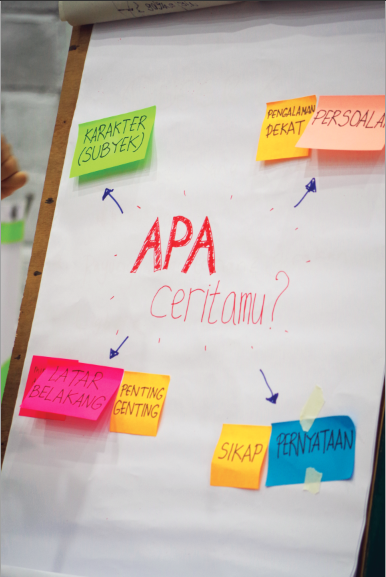

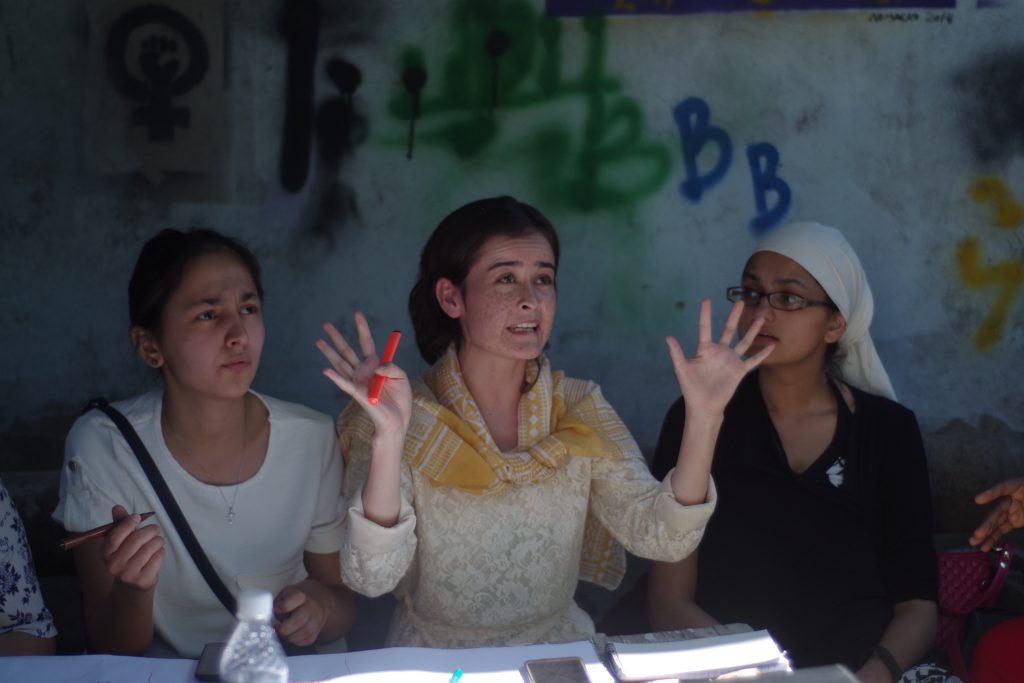





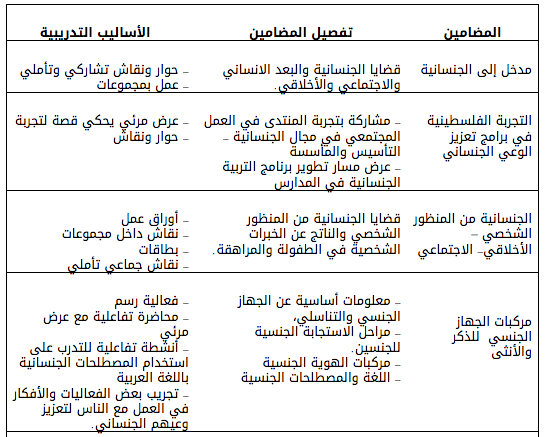






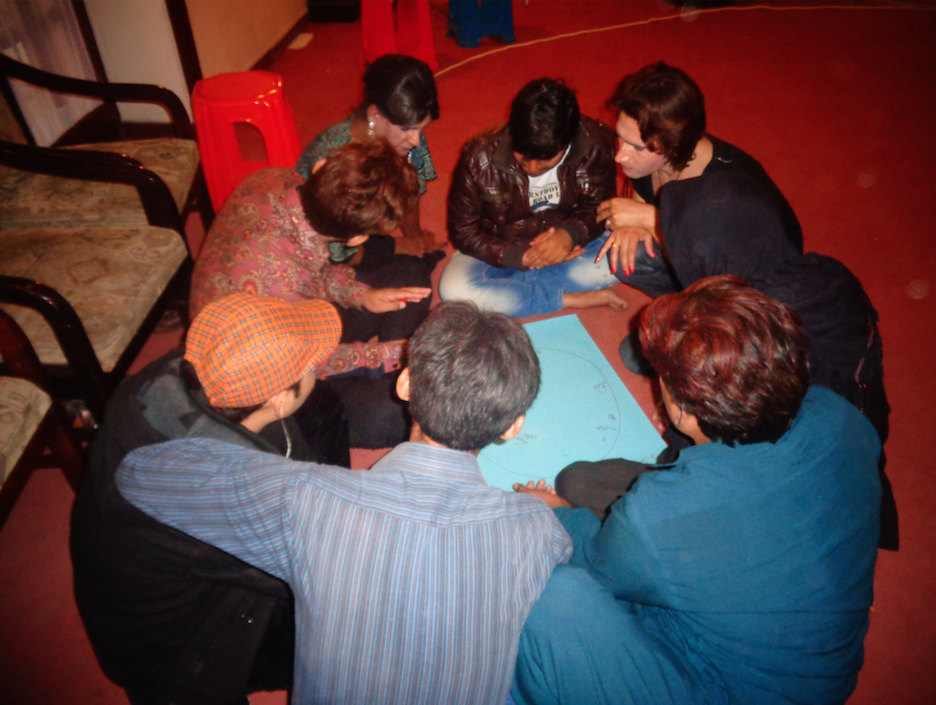








 How can we learn from successful initiatives to strengthen our collective power around sexual rights advocacy? From trailblazing Anti-Discrimination legislation for LGBTI rights in the Philippines, to transnational organizing for women factory-workers in Bangladesh, to evidence-based inter-faith advocacy across MENA and Asia-Pacific, we’ll explore WHRD’s successful strategies to find out.
How can we learn from successful initiatives to strengthen our collective power around sexual rights advocacy? From trailblazing Anti-Discrimination legislation for LGBTI rights in the Philippines, to transnational organizing for women factory-workers in Bangladesh, to evidence-based inter-faith advocacy across MENA and Asia-Pacific, we’ll explore WHRD’s successful strategies to find out. This Pre-Forum event will bring together 90 participants to discuss the evolving Feminist Principles of the Internet, and how we can collectively strengthen our movements for autonomy, access, privacy, and more through a look at feminism and technology. Read the blog post here:
This Pre-Forum event will bring together 90 participants to discuss the evolving Feminist Principles of the Internet, and how we can collectively strengthen our movements for autonomy, access, privacy, and more through a look at feminism and technology. Read the blog post here: 

